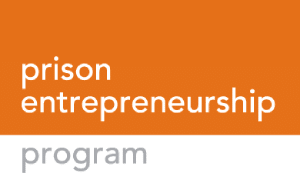Grants and other resources are available to people who were convicted of felonies and are interested in financing a business. The best small business grants and resources for former felons should offer financial and educational opportunities that provide capital and help support business growth. I’ve compiled some of the best financing resources, which can apply to various business owners and industries.
Grant opportunities
The TRANSFORM Grant: Best for systemically marginalized groups
Grant overview | |
Funding amount | $1,000, plus a year of customized mentorship and business development coaching |
Application dates | Annual offering |
Number of grants available | Not stated |
Selection criteria |
|
Application fee | None |
Eligibility criteria | |
Qualifying businesses | Any business owner by a systemically marginalized group |
Time in business | None |
Revenue requirements | None |
How the TRANSFORM Grant works
The TRANSFORM Business Grant is designed for individuals and teams creating meaningful social impact while facing financial need. This grant specifically supports systemically marginalized groups, including formerly incarcerated individuals, by offering financial resources and the tools needed to develop their businesses or business ideas.
What makes this grant particularly accessible is its focus on social justice and equity. Entrepreneurs impacted by the criminal justice system who are now creating businesses to challenge systemic oppression can apply. In addition to $1,000 in funding, grantees will receive one year of business coaching, including access to experts in branding, marketing, and skill-building — all aimed at helping them turn their vision into a thriving business.
Applications are reviewed twice a year with clear criteria focusing on alignment with anticapitalist and antiracist values, the potential for social impact, and a demonstrated need for financial support. The grant is open to individuals and teams at any stage, even those without formal business registration.
The NASE Grant: Best for monthly grant opportunities
 | |
Grant overview | |
Funding amount | $4,000 |
Application dates | Accepted on a rolling basis |
Number of grants available | Winners chosen every month |
Selection criteria |
|
Application fee | $12 per month, or $120 annually (requires a membership to apply) |
Eligibility criteria | |
Qualifying businesses | Any small business |
Time in business | None |
Revenue requirements | None |
How the NASE Grant works
The NASE Growth Grant provides small business owners with the opportunity to receive up to $4,000 to help expand and improve their businesses. The funds can be used for various business needs, such as marketing, hiring employees, buying equipment, or attending trade shows.
This grant is unique in that it does not exclude individuals with a criminal background. If you have a criminal past, you are still welcome and encouraged to apply, providing an invaluable opportunity for those who have been impacted by the criminal justice system. It is an excellent resource for formerly incarcerated individuals seeking to grow their businesses and overcome the financial barriers that can hinder success after reentry into society.
The grant is awarded based on your business’s identifiable need and clear plan for how the funds will be used to help grow your business. The review committee evaluates how the grant can positively impact your business’s success, so providing a detailed business plan is key to increasing your chances.
The Amber Grant: Best for women seeking to grow their business
 | |
Grant overview | |
Funding amount |
|
Application dates | Accepted on a rolling basis |
Number of grants available |
|
Selection criteria |
|
Application fee | $15 |
Eligibility criteria | |
Qualifying businesses | Women-owned businesses |
Time in business | None |
Revenue requirements | None |
How the Amber Grant works
The Amber Grant is one of the best opportunities for women entrepreneurs, including formerly incarcerated women, seeking funding to grow their businesses. Every month, one winner receives $10,000 to fund her business. Additionally, the monthly winners are entered into a contest for a $25,000 annual grant, with three annual grant recipients chosen from the pool of monthly winners.
Amber Grant also offers grants focused on business-specific categories, making it easier for women in specialized industries to apply for relevant funding. A startup grant is also available each month to entrepreneurs in the startup phase of their business.
This is open to women in the US and Canada and does not require specific revenue or business time-in-operation requirements, making it accessible to entrepreneurs at various stages of business development. The only requirement is that your business is women-owned and that you’re 18 years or older. Formerly incarcerated women are encouraged to apply, as the Amber Grant seeks to empower all women working towards business ownership, regardless of their background.
LEAP Entrepreneurship Academy: Best program for women wanting to start a business
 | |
Grant overview | |
Funding amount |
|
Application dates | Accepted on a rolling basis |
Number of grants available | Varies |
Selection criteria |
|
Application fee | None |
Eligibility criteria | |
Qualifying businesses | Only open to formerly incarcerated women |
Time in business | None |
Revenue requirements | None |
How the LEAP Entrepreneurship Academy works
The Ladies Empowerment and Action Program (LEAP) is designed specifically for formerly incarcerated women desiring to own and operate a business. This 12-week entrepreneurship program provides valuable education, mentoring, and resources to help women with little or no funds get their business ideas off the ground.
Throughout the course, participants will learn how to start, manage, market, and grow a business. The program covers essential skills like writing a business plan, operating a business, doing marketing strategies, and presenting business ideas to potential investors. At the end of the course, students have the opportunity to participate in a formal pitch competition where successful entrepreneurs will be available to help bring their business ideas to life.
For formerly incarcerated women looking for a supportive, comprehensive, and hands-on program, LEAP offers the education and the tools to make their business dreams a reality.
Entrepreneurship programs
Other types of programs aim to help support formerly incarcerated people looking to become entrepreneurs.
Prison Entrepreneurship Program (PEP)
 | |
Overview | |
Description | PEP is a nonprofit that offers training in business, leadership, and entrepreneurship to formerly and currently incarcerated individuals. It helps participants develop skills that can lead to business grants, financing, and mentorship. |
Eligibility criteria | |
Qualifications |
|
Overview of PEP
It is a nonprofit that helps formerly and currently incarcerated individuals with the resources and skills necessary for success in business and leadership. The program provides training on entrepreneurship, business strategies, and personal development. One of its standout features is its emphasis on mentorship, connecting participants with successful business professionals who guide them in their entrepreneurial journey.
The program is known for its high success rate, with many graduates becoming entrepreneurs or securing employment. Participants also have the chance to develop business plans and present them to real-world investors, which can open doors to funding and resources upon their release.
Local Initiatives Support Corporation (LISC)
 | |
Overview | |
Description | LISC provides funding and resources for community development, including grants and loans for small businesses. Many programs target individuals affected by incarceration. |
Eligibility criteria | |
Qualifications |
|
Overview of LISC
This is a nonprofit focused on improving the quality of life in underserved communities throughout America. It works with local organizations to provide financial support, expertise, and resources for projects aimed at revitalizing neighborhoods. Its efforts include affordable housing, job creation, education, and public safety.
Through grants, loans, and technical support for local businesses and development projects, LISC aims to enhance economic opportunities. By investing in these initiatives, its goals are to reduce poverty and inequality, helping build stronger, more resilient communities. Over the years, LISC has invested billions of dollars, creating a lasting impact on neighborhoods nationwide.
Inmates to Entrepreneurs (I2E)
 | |
Overview | |
Description | The I2E program helps individuals with criminal records start businesses by offering a free, eight-week course on business planning, marketing, sales, and finances. It is available online and in person year-round and focuses on teaching low-capital business skills. It does not provide financial assistance or startup capital. |
Eligibility criteria | |
Qualifications |
|
Overview of I2E
The program is a nonprofit that helps currently and formerly incarcerated individuals pursue entrepreneurship as a path to success after release. It offers training in essential business skills — such as business planning, marketing, and financial management — to help participants turn their ideas into viable businesses. It also focuses on personal development, encouraging individuals to build confidence, leadership, and resilience.
Its goal is to provide incarcerated individuals with a second chance to transform their lives through entrepreneurship. I2E provides mentorship and resources, connecting participants with experienced entrepreneurs who guide them through starting and growing a business.
Georgetown Pivot Program
 | |
Overview | |
Description | The Georgetown Pivot Program helps formerly incarcerated individuals transition into careers or entrepreneurship by offering business training and personal development. Participants receive a stipend, learn skills like marketing and finance, and can either start a business or find a job after completing the program. It's open to D.C. residents, ages 25 and older, with a high school diploma or GED. |
Eligibility criteria | |
Qualifications |
|
Overview of Georgetown Pivot Program
This is a unique initiative designed to help formerly incarcerated individuals successfully transition back into society by providing education, career development, and mentorship opportunities. The program allows participants to earn a certificate in business and entrepreneurship from Georgetown University, providing them with valuable skills for the workforce.
It also provides personalized coaching, job training, and networking opportunities to help individuals secure employment. Essentially, it aims to break down barriers to success and promote long-term stability for those reentering society.
Other funding resources
There are organizations that can lead you to various financing, educational, or entrepreneurial opportunities.
Organization | Purpose | Site |
|---|---|---|
Directory for various federal grants and application resources | ||
 | Resources to support initiatives focused on justice, human rights, democratic governance, and social reforms, aiming to empower organizations and individuals advocating for change |
How I evaluated the best small business grants & resources
I considered a few important factors when evaluating the best small business grants for former felons.
- Grant and resource offerings specific to former felon-owned businesses
- Industry inclusivity
- Accessibility of the application process
- Additional resources provided with grant funds
- Qualifying criteria and required documentation
- Grant value and number of opportunities available
How to get grants
Consider the following process to help you when preparing your application:
Similar to getting a small business loan, writing a business plan and making the plan readily available when applying for grants are necessary. You’ll likely need to demonstrate your business’s products and services, structure, and long-term goals. Additionally, your plan should reference how you intend to utilize grant funds and how they can provide growth opportunities for your business.
Qualifications for grants for convicted felons to start a business will vary, so you’ll need to research the grants you’re eligible for. Grants tend to be industry-specific or have other specifications that limit who can apply, so you should only apply for those for which you meet all the requirements.
The best way is to compile a list of grants you’re interested in and review the application criteria. This way, you can find which ones you’re eligible for, narrow your list down, and maximize your efforts.
When applying, you will need to prove that you are a legitimate business and have to supply various documents to ensure the validity of your application. Examples of requested documents include a business license, articles of incorporation, and financial statements. Prepare to have these on hand to help streamline the application process.
For each grant you apply to, note any application deadlines or supplemental materials required.
Financing alternatives for former felons starting a business
If you are unable to obtain a grant or loan and are looking to source funds in other ways, here are a few alternatives.
- Crowdfunding: This is a way to raise money from various interested investors via a fundraising platform. It is usually considered a low-risk way to promote your business and offers various return options that are rewards-, debt-, equity-, or donations-based. Check out our guide on how to crowdfund a business to learn more.
- Angel funding: Angel investors who invest seed money in the early stages of a business can provide angel funding to help high-potential businesses grow. Our article on how to raise angel funding for your business can help you get started.
- Venture capital: Venture capitalists who are interested in investing in your business in exchange for equity can be another way to source funds. This scenario typically involves multiple funding rounds in which venture capital is provided to support business growth and generate a return on investment.
- Startup business loans: For a new small or startup business, it can be challenging to secure traditional financing like a loan. However, there are startup business loans — such as personal loans for business, home equity loans, and SBA loans — that can provide funds for new business ventures if you meet the criteria.
Frequently asked questions (FAQs)
Yes — if the grant specifies that it is applicable to those with felonies. That said, various financing options are available in addition to grants, which may include business loans, friends and family loans, and crowdfunding.
It depends. Grants have varying application requirements, and their levels of accessibility can differ based on the specifications of the provider granting the funds. Generally, the easiest grants to get require limited documentation and have flexible qualifications.
Grants for felons starting a business require reviewing your qualifications and submitting an application and any supplemental materials for consideration. While there can be a fair bit of competition in getting a grant, it’s worthwhile to put in the effort in the chance you get funding with no debt obligations.


